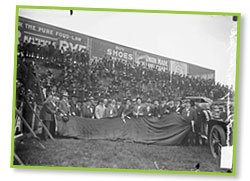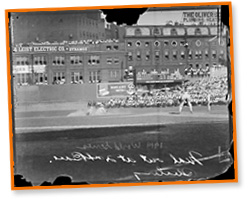A Tough Call
Elementary: Grades 3–4
Story
Page: 1 | 2 | 3 | 4 | 5 | 6 | 7 | 8 | 9 | 10
"Comiskey was a cheapskate and a bully," Dave went on, like he knew anything about the Sox, or their owner. "They were at the top of the league, but he paid them less than worse players got."
"So maybe the guys just wanted to get back at him," I suggested, wanting to justify my team's actions. "Because they deserved more."
"Could be," Dad said, being all reasonable. "But the way they went about 'getting more' wasn't exactly on the up-and-up, was it, Dan?"
When I didn't reply, Dave said bluntly, "It's what you call selling your soul to the devil." He cackled melodramatically.
"Whatever," I replied, leaning back and folding my arms across my chest. I was done with dinner. Even dessert didn't interest me anymore. I excused myself and went back to my room. I needed to get a good look at that second scrapbook.
Sure enough, it was all there. Just as Dad and Dave had claimed, the White Sox had been the huge favorites to win the 1919 World Series. But overall, they did lousy. Out of eight games against Cincinnati, the Sox lost five. They even gave away the final game to the Reds, getting beat ten to five. The Cincinnati Reds whipped the greatest team playing that year and became the 1919 World Series champs. It was hard to accept, even for me in the 21st century.
The papers made it clear that betting on baseball games was a pretty big business back then. Some of the reporters complained that gambling was completely ruining baseball and had to be stopped.
As I read the vivid details of the newspaper stories, it felt like history was coming alive. But the facts didn't exactly make me happy. The plan to throw the series did involve eight guys. Later, two confessed the whole thing, including an important pitcher named Eddie Cicotte. The other was Shoeless Joe. Joe admitted he'd agreed to take $20,000 to lose. But after getting $5,000, he claimed he didn't see another penny.
Downloads (pdf)


